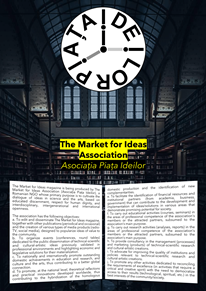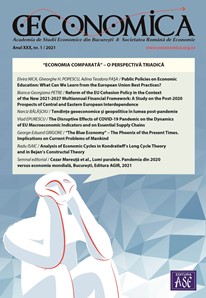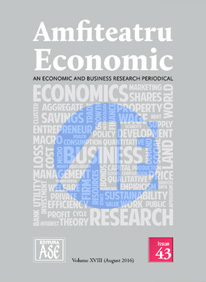
Of Sand and Time – Life, Dignity and Age in a World of the Self
“Safe upon the solid rock the ugly houses stand:
Come and see my shining palace built upon the sand!”
Edna St. Vincent Millay
For the first 18 years of life, people are dependent on others. Their productive years are perhaps from 18 to 60, or more, if they are lucky. Then, they become reliant on others again. After having gotten used to independence, they revert to a childlike status. In the West, especially the US, they might move in to assisted living facility and have their belongings, including their home (including through specialized products such as reverse mortgages), sold so that they can afford a good care facility in their old age. And then, just like that… damnatio memoriae! They are one step closer to being forgotten, along with obsolete models of lifestyle, mores, and economic thinking. Almost as if fearing the reminder of impending old age and eventual death, contemporary society is quick to hide elders away, to put them in a place where we will not bother or depress anyone with the reality of their existence.
Youth is praised though. It is encouraged to produce, often, more than it is capable. The geniuses and experts of the 21st century are valued more if they are in their prime, regardless sometimes of that precious gift that previous generations valued, experience. People are constantly in a rush for they know their time is limited. The time to be young, to exist, produce and be seen, is limited. In the middle of this sits, satisfied but not at ease, the nuclear family.
Of sand: The nuclear family
There is a lack of help for the young in raising their children. In the cities, especially in the West, it is rare to hear of grandmothers and parents living with their family. Mobility means that people go where the opportunities are, foregoing living in the same place as their elders. Childcare is expensive. And there is less emotional and physical support to be found in the absence of an extended family. Granted there is also less familial stress. But new stresses have taken its place. Children are put in institutions such as kindergartens from a young age, then schools and colleges. Time with the family is not as extensive as it used to be. It is as if there is an expiration date for each person. Institutionalized children prepare to institutionalize their parents. Thus, the emotional limbo that is the senior living facility is full of people who have reached the end of their productive period, some having had their belongings and memories sold in the meantime. In this limbo, parents wait to die instead of enjoying what is left of life. That is not to say that some don’t prefer the comforts of living in these facilities or that others do not need it. But the rate at which this is happening, and the habit born out of it point to a clear societal trajectory. We are all growing further apart and choosing to take increasingly less responsibility for each other.
The art of aging
High levels of anxiety come with ‘not knowing how to age’, an ‘art’ we only learn from watching our elders deal with age related problems – genetically what might await us, how we might both prevent and or deal with it, and emotionally how we might embrace the changes. If we learn how to grow old within the safety of the extended family unit, we can accept old age as an understandably bothersome acquaintance, one that might plague us with inconveniences, but does not doom us to a nightmarish ritual of suffering just before putting us to death. Rather we are surrounded by loved ones, taken care of and asked questions which our experience can help answer. We are, in a word, put to use not left to atrophy. But in loneliness, the problems of old age come upon us as a reminder of the cold kiss of death looming in the dark around every corner accompanied by perhaps an even worse realization of our social demise being the painful precursor to our physical one.
One rarely sees in the younger generation that realization that they are teaching their own children and society at large how to treat them when they themselves age. Ignored are the few bastions of such societal relics, like the Greek, Italian and Japanese mores with centenarians living not only a long but a productive and good life, providing experience, advice and help for their families as much as their families provide security for them. The life expectancy most developed countries like to tout as progress amounts to nothing if it is not accompanied by quality of life. In this fast lane, we only have a small window of life. And as small as it is it seems we aim to make it smaller.
Of time: To be a person
Logical and emotional inconsistencies with regard to unwritten rules of modern civilization and how it cares for its people flow in abundance. For instance, some would militate for the banning of abortion altogether, yet in their frenzy to stick to the proper line of what a person is, they conveniently forget to wish the pregnant woman a ‘happy Mother’s Day’ and her husband a ‘happy Father’s Day’. If they do, it is with the constant reminder that they are ‘parents to be’. But one cannot have it both ways. The expected unborn is either a fetus, this obscure designation of a developing non- person- human who only has the rights his mother gives him, or a child, an independent soul and human person who should already have all the rights afforded to one living outside the womb. If it is a child, then they are already parents, with all the responsibilities entailed. If it is not a child already, then they become parents once the birth takes place.
Looking at society in general, it is almost as if one is only a real person for a limited number of years, perhaps for 50, or 60, or whatever their so -called productive years allow. The unborn are discounted. The children are treated as annexes. The elderly are ignored.
Toward the future
For the child and the senior, life is a dangerous collection of dependencies. We listen to experts on childcare, but their opinions change over time. Some of their methods are then thought to have been dangerous. If some get it wrong, who do we sue? How do we fix our broken child? In a world where basic human instincts and knowledge of right and wrong have been castrated, what do we rely on? The ‘village’ is no longer there to help, the grandmas are mostly absent or lack the knowledge of old. The overlooked child becomes the absent minded adult and then the overlooked senior and life keeps going in this arrhythmic way.
We seem to be stuck in emotional and mental cube of randomly attributed numbers which either give our lives purpose or take it away. It is important to look closely at ourselves and society. It might not be too late. But the more we let ourselves believe that we are doing just fine despite obvious issues, the more we are ignoring a cultural foundation built in the proverbial sand. We must see our children and elders; we must learn to live and sacrifice with them once more. We must be present and, most importantly, we must pay attention.
The nuclear family, and the institutions build around it, apart from when they are necessities in special situations, are failing. As time blows the sand out from under our rickety foundation, we need to stop, think and feel. We need a mixture of old wisdom and new discovery that can go hand in hand in the future and provide us all with a sound foundation on which to stand. We cannot afford to live unattentively and unempathetically. Otherwise, we risk ending up in the tar pits of history’s desert, unaware of how we got there and unable to drag ourselves or civilization out.








